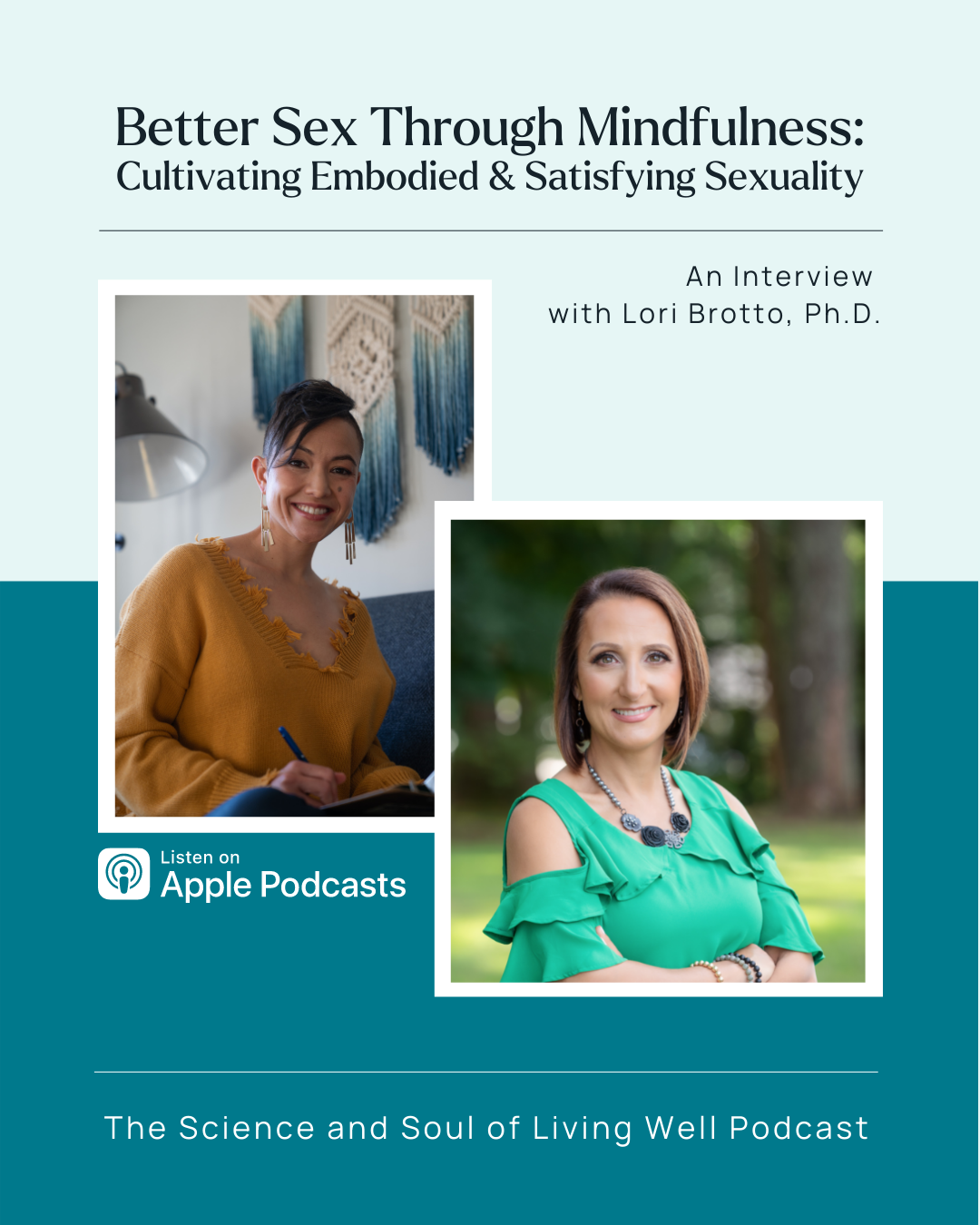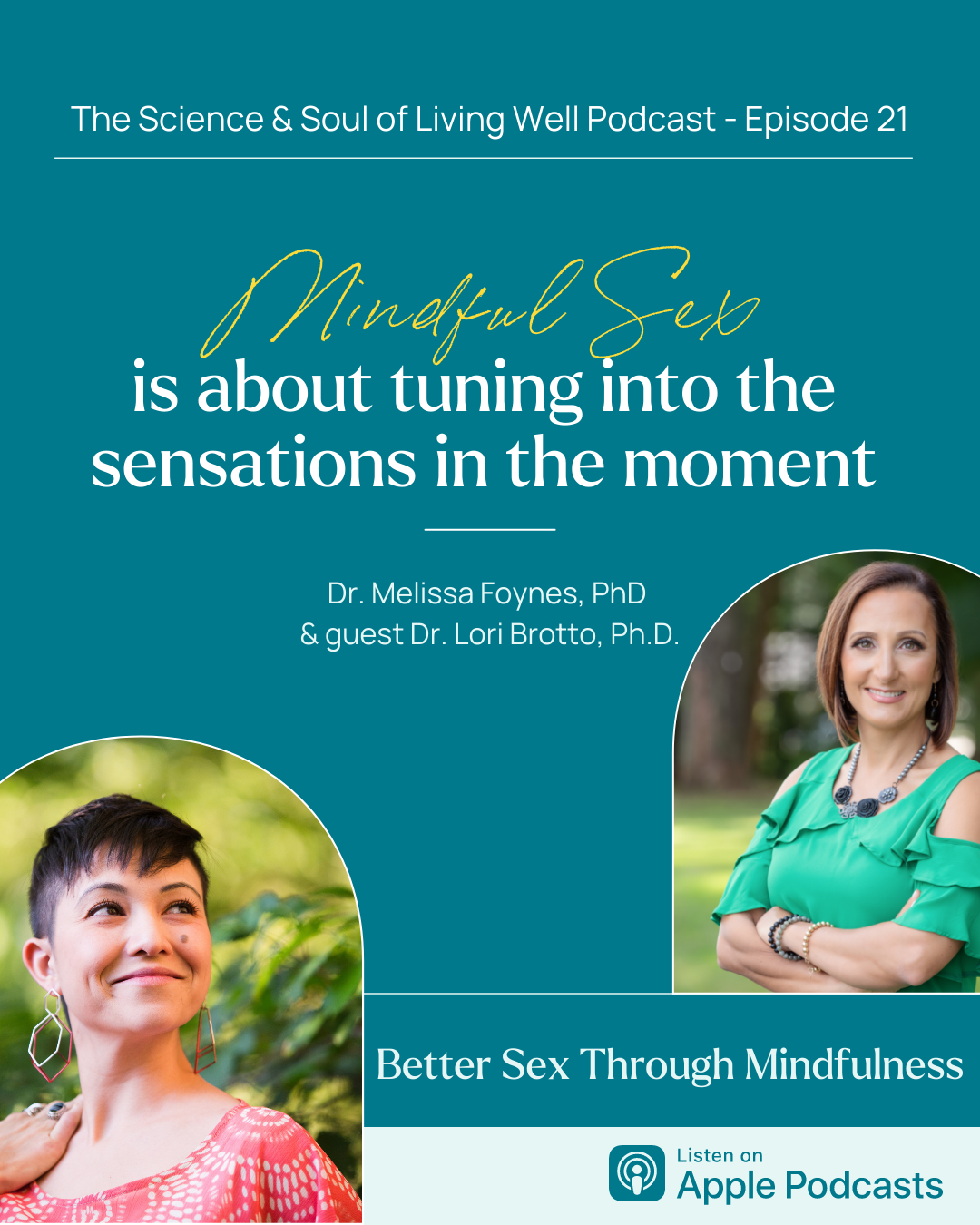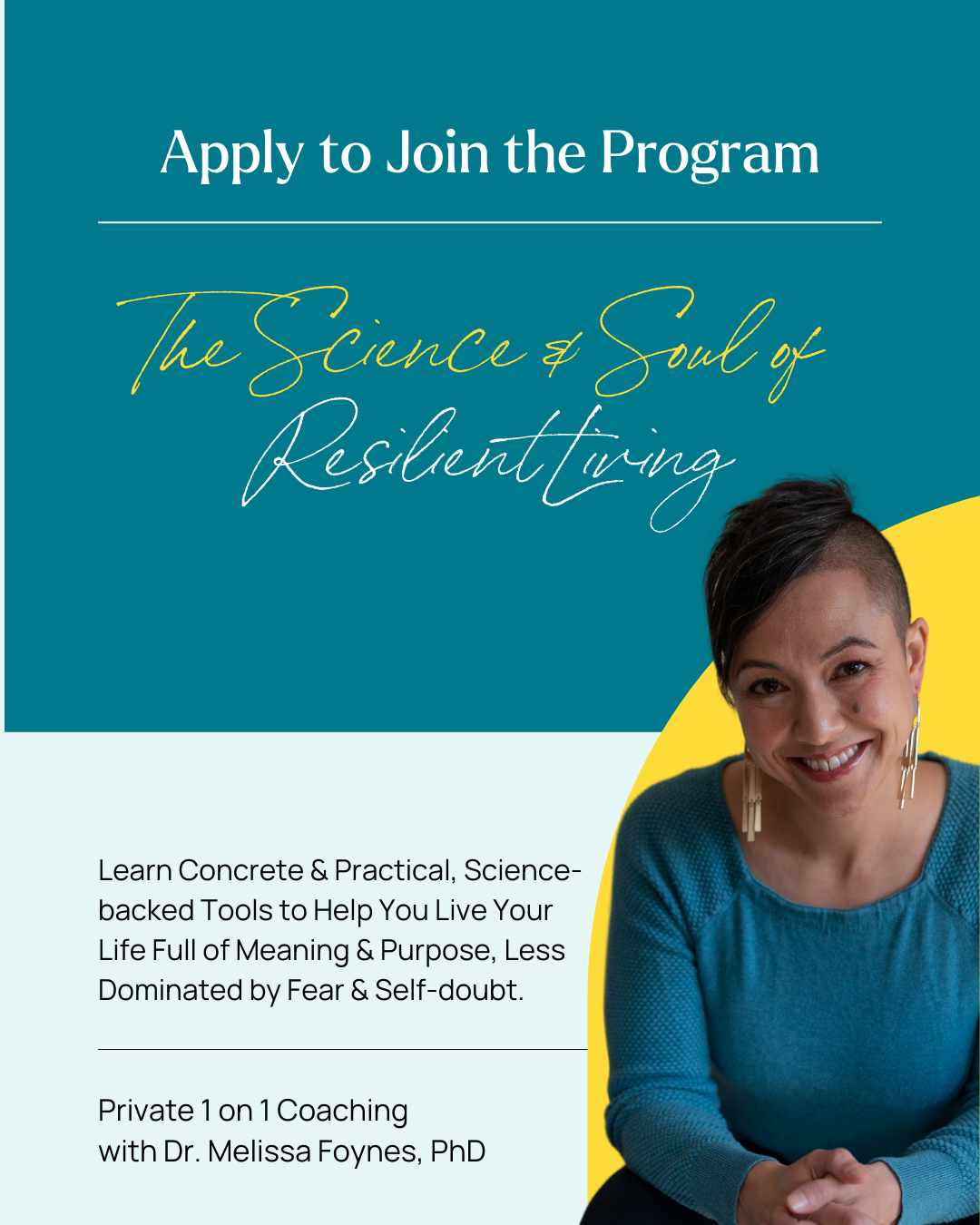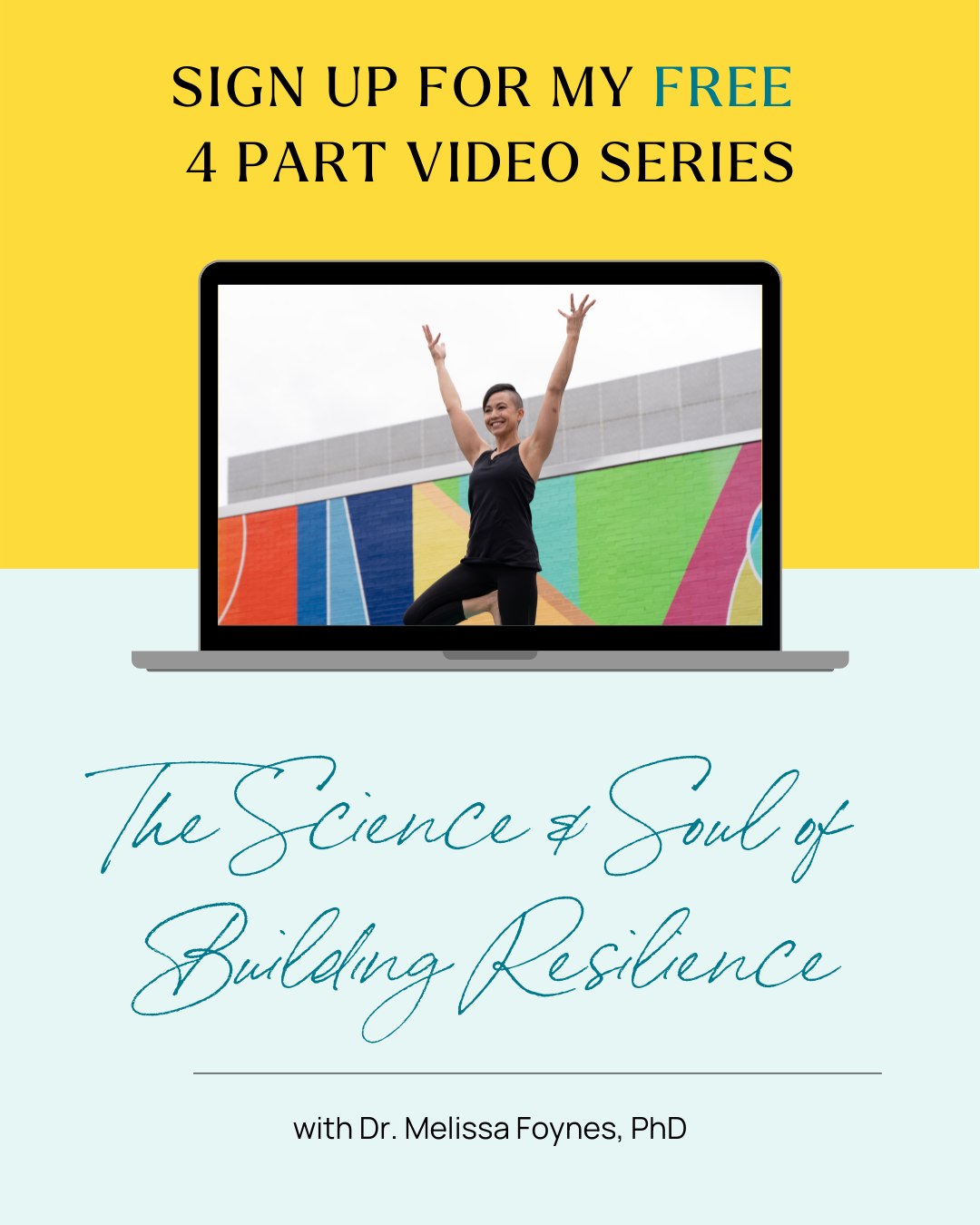welcome, I'm Melissa
Links
As a holistic coach, psychologist, mindfulness, meditation & yoga instructor, & Ayurvedic doula I offer personalized paths to growth & healing.
you may also like...
Better Sex Through Mindfulness: An Interview with Lori Brotto, Ph.D.
June 1, 2021
Why is mindfulness such an optimal tool for promoting better — even magnificent — sex? Sex that involves full aliveness, presence, empowerment, attunement and connection.
Satisfying and embodied sexual lives are essential to our overall health and general quality of life. But how do we practice mindfulness when it comes to our sexual well-being?
Dr. Lori Brotto is a Registered Psychologist and Professor in the Department of Obstetrics and Gynecology at the University of British Columbia. She’s also the Executive Director of the Women’s Health Research Institute and author of the powerful book Better Sex Through Mindfulness.
In my interview with Dr. Brotto, we explore the relationship between better sex and mindfulness.
She highlights research regarding the influences that contribute to sexual desire, arousal and response. She also debunks common myths while emphasizing the importance of understanding what turns us on sexually.
In our conversation, she shares tips about how to compassionately embark upon this sometimes challenging exploration, especially when it comes to…
-
- Messaging we’ve internalized related to sex
- Memories of unpleasant sexual experiences
- High emotional charge around sex due to trauma or other life experiences
Highlights from Our Conversation on Better Sex and Mindfulness
A Definition of Mindfulness…
Melissa: It might be helpful to begin by talking about your definition of mindfulness since so much of your work centers around it. How do you define mindfulness in your own life and work?
Dr. Brotto: That’s a really important question. There’s so much in the popular media around mindfulness, but definitions vary about what we mean by that.
I’ve adopted the definition that’s conventionally used in other mindfulness-based fields and interventions. Mindfullness essentially boils down to two things:
1. First, it’s about guiding the attention; it’s attention training or concentration training onto a particular target.
2. The second part — and perhaps the more important part with regards to sexuality — is how we do that. We do this in a way that is compassionate and non-judgmental.
So it boils down to paying attention in a kind and compassionate way.
It’s not about paying attention and then fixating your attention on a particular target. Rather, we recognize and accept that the attention is like a puppy dog; it goes here, and it goes there.
We often have to guide the attention back, and when we do that, we do so with kindness to ourselves.
So that’s the definition that my work has followed.
And when we apply that to sexuality, it actually works really well. The domain of sexuality and sexual difficulties is often laden with judgments, including self-judgments about not being good enough.
The compassion part of mindfulness is really, really important when we talk about mindful sex.
Melissa: I appreciate you sharing that definition. I think it highlights, in an accessible way, the practice of mindfulness and what the construct really means.
Why Mindfulness is Important for Better Sex…
Melissa: One of my favorite quotes from your book is about the essential nature of mindfulness for embodied and satisfying sexual lives:
“Based on my own observations of mindfulness, I would argue that satisfying sex is quite simply not possible without mindfulness. When the women in our groups recall an experience of magnificent sex, the details of the activities and settings vary significantly.
However, their stories share one critical ingredient in common: the person was fully present fully alive, fully connected, fully there…In my opinion, it is mindfulness — to be fully present with each sensation without judgment or without commentary — that I think has been missing from sex from the countless women who are dissatisfied with sex.
It is simple but not easy. It requires a lifetime commitment to practice. Mindfulness is transformational. I invite you to begin to experience success in a way you never have before. It is all within reach simply by paying attention right now, right where you are.”
Influences that Contribute to Sexual Desire and Sexual Arousal…
Melissa: I wonder if it might be helpful to hear from you about the influences that contribute to sexual desire and sexual arousal.
I think one of the really helpful strategies to becoming more embodied in our sex lives is to understand our own sexual response. That is something that many of us, due to how we were raised or certain societal messages, are not taught; we’re not taught how our bodies work.
Could you share what you think is relevant in that regard?

Dr. Brotto: There are a lot of societal myths that I think we take on unconsciously.
If we were aware of this, we would reject them as myths and endeavor to find accurate information.
But there are a lot of myths like sex should be automatic. We might believe that our bodies should respond with appropriate stimulation, and we should be responsive — regardless of the time of day, the context or what else is on our mind.
Other myths we hold are that desire is spontaneous, and if you love a partner, you should feel desire for that person.
And there are many, many more, but they really are myths.
First and foremost, we want to acknowledge that there are societal messages that we’ve internalized, and we want to acknowledge our own personal beliefs about sexuality.
Mindfulness can be important in that process because mindfulness is about tuning in. And sometimes when we tune in, we bring awareness to the body as well as to mental events.
Understanding Our Sexuality…
Dr. Brotto: Step one is to take stock of our personal framework for understanding sexuality.
With regards to the body’s response, there’s a fair bit of research that suggests our bodies are programmed to have a responsivity to triggers. And that differs for all of us.
These triggers can include…
-
- erotica
- touch
- fantasy
That’s where the body’s involvement is. But it doesn’t work in isolation.
With our bodies’ pre-programmed responsivity, it requires that there are stimuli or triggers in our environment.
So a good parallel is when we think about happiness. We might be pre-programmed in a certain way to be more responsive — or less responsive — to happy things.
It really depends on those things that elicit happiness in us. For example, someone says something nice, we see something that brings us joy or maybe we have a memory of something.
That is what we mean by a trigger or a stimulus.
These two things operate together in sexuality as well: our predispositions for response as well as our triggers that elicit a sexual response.
That becomes important because we may not have learned what those triggers are for us. We may never have had an opportunity to explore what are the things that turn us on.
Or we may have received messages that touching one’s body is wrong, or viewing something that is erotic is dangerous, damaging or inappropriate.
Learning What Excites Us…
Dr. Brotto: As mature sexual beings, regardless of our age, it really behooves us to know what excites us and what doesn’t excite us. This can run the full range of touches, sounds, tastes and visual triggers.
This might evolve over the course of our life as our physiology or hormones change.
And if you are in a long-term relationship, recognize that those responses may change as well.
So the basic ingredients are having a predisposition to a response and then having effective triggers.
Here’s where mindfulness comes in. The brain takes those two ingredients and then translates that into sexual response.
Sexual response includes arousal — the sense of physical awakening in both the body and the mind — which is then followed by desire.
For a lot of people, desire happens after arousal. It’s very normal, very common for a person to first become sexually aroused. This then paves the way to the wanting, to the craving. So arousal gives way to desire rather than the other way around.
Triggers for Sexual Desire and Arousal…
Melissa: Do you have tips or suggestions for people who don’t know or don’t have a strong sense of what their triggers for desire and arousal are?
How can people go about the process of exploring their triggers in a mindful, non-judgmental and compassionate way?
Dr. Brotto: For a variety of reasons, most people have not really explored what turns them on and what sexually excites them.
I think we can go into this with a lot of permission-giving. We want to set aside beliefs like “I’m too old for this,” or “I’ve been in a relationship too long” or “my partner should just know.”
Rather, I borrow from the lens of health and view this as really, truly health-promoting. This is a way to nurture and take care of our broader health.
What if Sexual Exploration Is Emotionally Charged…
Melissa: For many people who have had trauma, sexual trauma, medical conditions that have affected their relationships to their bodies, or even unpleasant sexual experiences that we don’t necessarily deem traumatic, engaging in some of these explorations can bring up a lot of emotion.
I’m wondering if you have any pearls of wisdom that you might share for people who experience a lot of emotional charge around this exploration.
Dr. Brotto: It’s useful to start with Jon Kabat-Zinn’s language of the beginner’s mind, which is the idea that every time we practice mindfulness, we have our past experiences and our past memories.
But it’s as if we’re working with a brand new blank canvas every time — because this day, this time and this particular practice is not the same as the last time, the last practice and the last encounter.
I’ll admit it’s challenging because those past memories, especially if it’s with the same partner, can be so vivid.
But mindfulness helps us go into a new encounter with a sense of a beginner’s mind. So it might be different.
If I can use my attention and my compassion to stay present with whatever comes up, maybe I’ll be open to experiencing things in a slightly different way.
A memory does not predict future events. It’s a statement of something that happened in the past, but it’s no guarantee of what happens in the future.
Survivors of Past Sexual Assault…
Dr. Brotto: The other thing I wanted to say about this relates to an actual research study that we did with survivors of past sexual assault who now found themselves in healthy, consensual, loving relationships.
They wanted to have sex and adored their partners. When they attempted to engage in sexual activity, the arousal would trigger dissociation for them, and their minds would go back to those past sexual encounters.
You can imagine how upsetting and distressing that was because they’re wanting to have sex. They’re happy, and they have consent in a way that they didn’t in the past.
Teaching them to practice tuning in — in a safe, consensual way — was the key for learning that arousal did not have to be scary for them.
Melissa: So it’s almost like reconditioning your response. The same cues that signify arousal are now associated with the present-focused memories as opposed to the more historical examples and encounters.
Dr. Brotto: Yes, mindful sex really is about tuning into the sensations in the moment.
When we do that, we don’t notice or pay attention to other thoughts that might be happening at the same time.
And when we expand the container of our awareness, we make room for acknowledging that there might be other thoughts and memories.
But there can also be this very grounding experience of noticing the vibrations of sex — the sounds and intensity of it. That can become the foreground of the experience while memories and other thoughts can fade into the background, eventually becoming eliminated altogether.
Better Sex Through Mindfulness: Next Steps
Mindfulness practices for improving our sexual health can be transformational.
To deepen your awareness…
- Listen to the full podcast with Dr. Brotto.
In the podcast, Dr. Brotto describes two powerful mindfulness practices from her new workbook:
1) Sexual Sensations Awareness – a practice that promotes alignment of physical and mental arousal
2) Mindfulness of Difficulty – a practice bringing a spirit of compassion and openness to a range of experiences both sexually and beyond
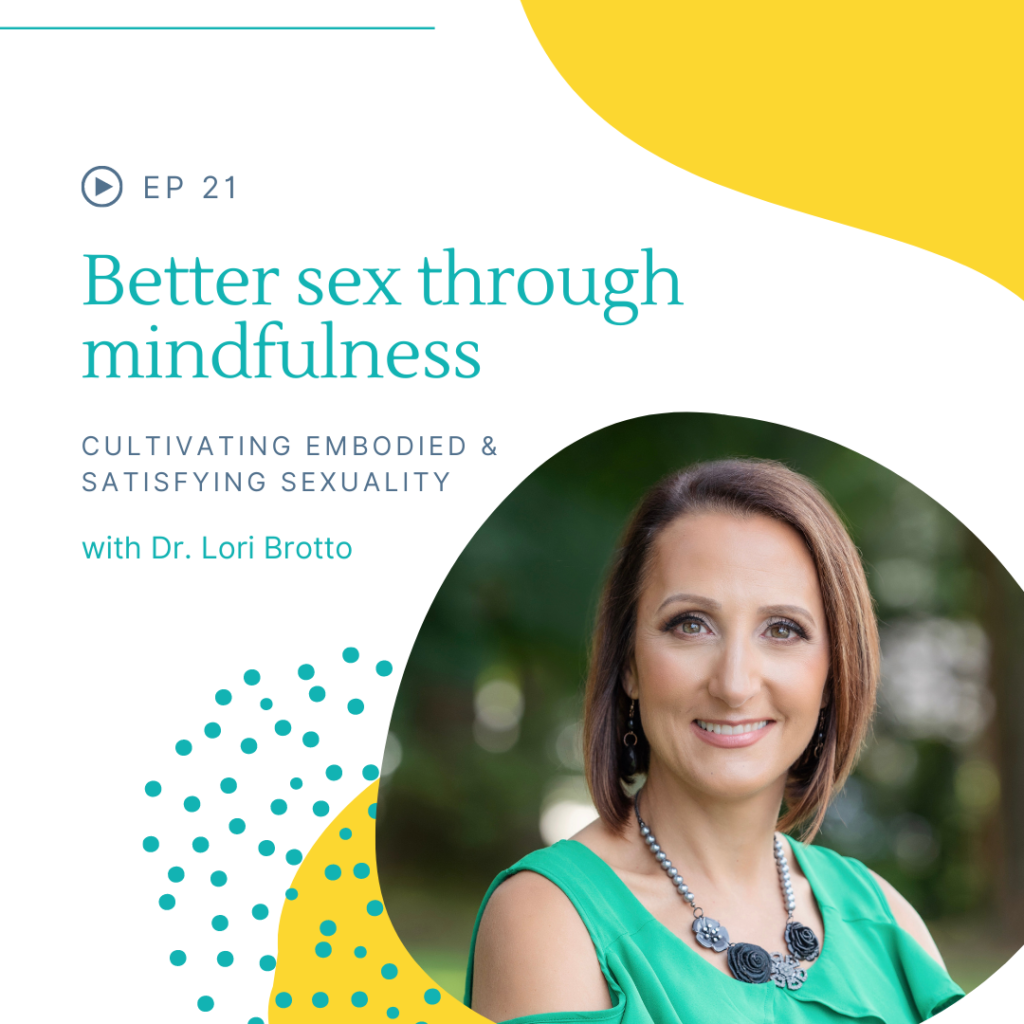
You can also learn more about my coaching practice through this free video series:
The Science & Soul of Building Resilience
In this 4-part series you’ll learn:
- Body awareness to help us center ourselves and live in a present-focused and embodied way even in the midst of stress
- Decreasing our stress response so we can access intuition and connect to our needs
- Values clarification to guide decisions about prioritizing our time, attention and energy
- Self-compassion to soften our harsh inner critics and facilitate growth following mistakes
SIGN UP to Get Instant Access!
MAKE SURE TO SUBSCRIBE TO THE SCIENCE & SOUL OF LIVING WELL PODCAST!
Apple | Google | Spotify | iHeart | Audible
You can also contact me or join us on Instagram – @drfoynes.
Dr. Lori Brotto conducts research on women’s sexual health and difficulties, develops mindfulness-based and psychoeducational interventions for women with sexual desire and arousal complaints, and studies many aspects of sexual health, including culture and sexuality, hormones and sexual desire, cancer and sexuality, concerns about HPV and sexuality, and asexuality.
She has published over 200 articles and book chapters and is frequently contacted by the media as a guest expert on the topic of sexuality. Her book Better Sex Through Mindfulness, published by Greystone Books, is a scientifically informed translation of her research on mindfulness to improve women’s sexuality.
Dr. Brotto is currently working on her second book with self-guided mindfulness practices; the workbook is scheduled for publication in 2022.
You can follow Dr. Brotto on Twitter (@DrLoriBrotto, @ubcshr, @womensresearch), Instagram (@ubcshr, @womensresearch) and Facebook. Her website is UBC Sexual Health Lab.
Article Related to Mindfulness and Sexual Well-Being:
Mindfulness, Self-Trust and Intimacy: A Conversation with Justine Dawson
Freebie Alert!
Freebie Alert!
Newsletter
Sign up to get a dose of love, inspiration, wisdom &
all the latest news on events straight to your inbox.
privacy
terms
made with ❤ by habitat society
Explore
©2022, Melissa foynes
Thank you
You're subscribed to my newsletter. Please whitelist my email to make sure you don't missing anything I send you.
